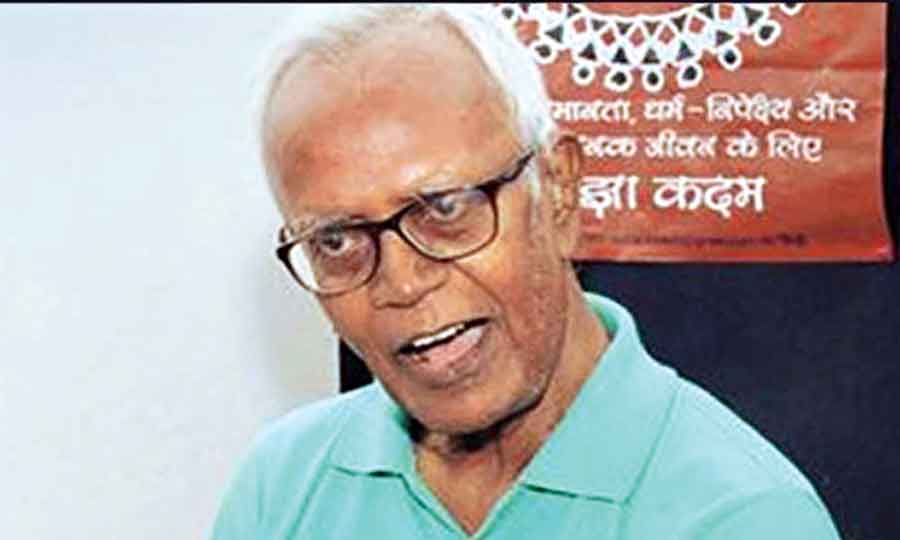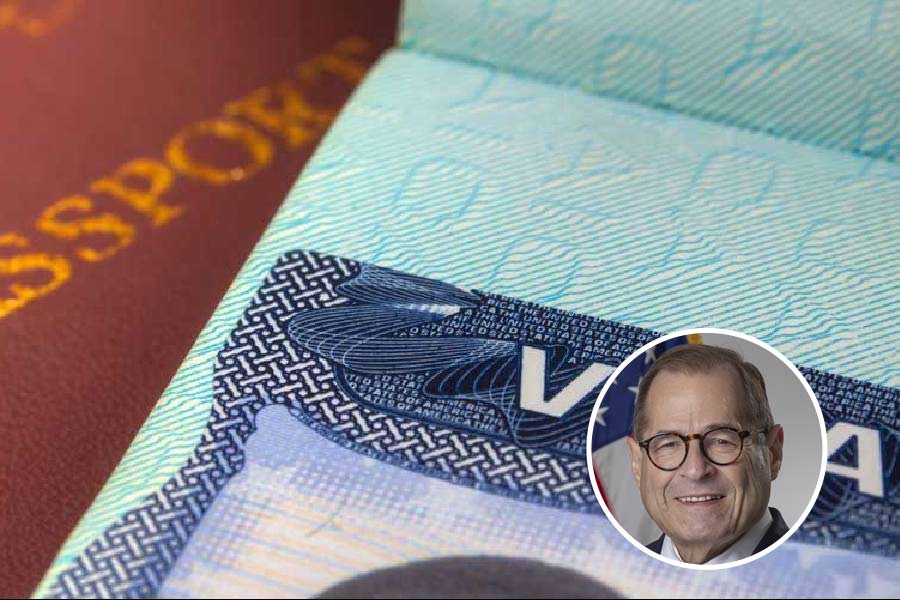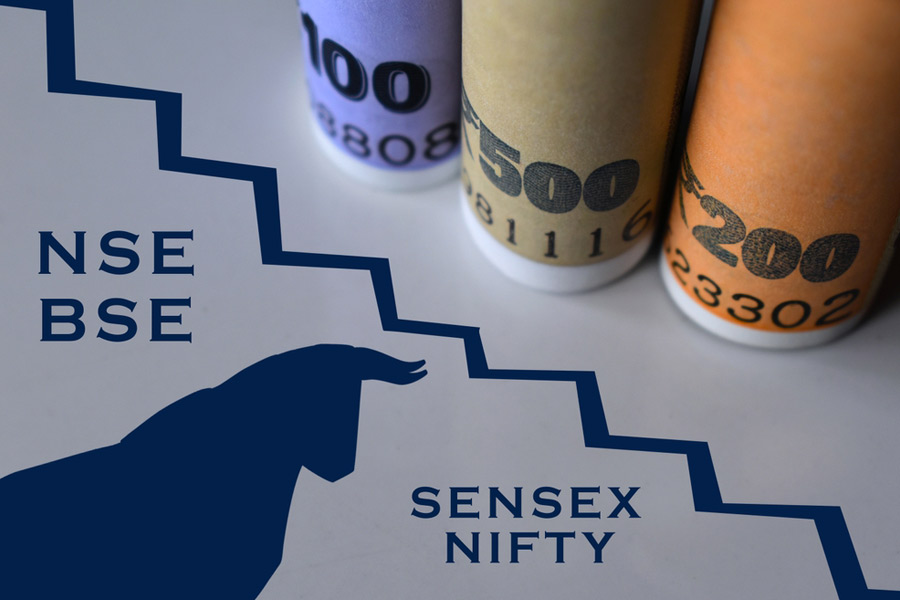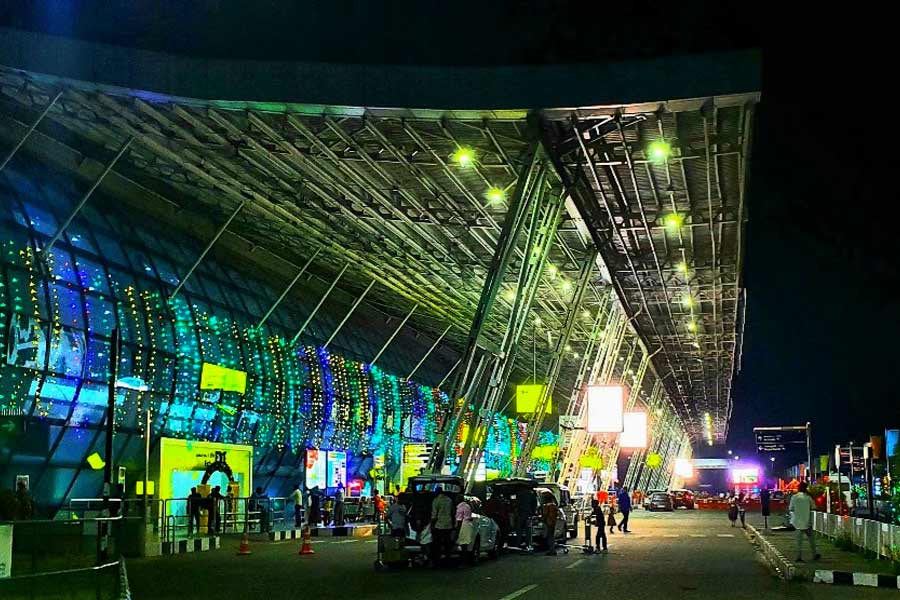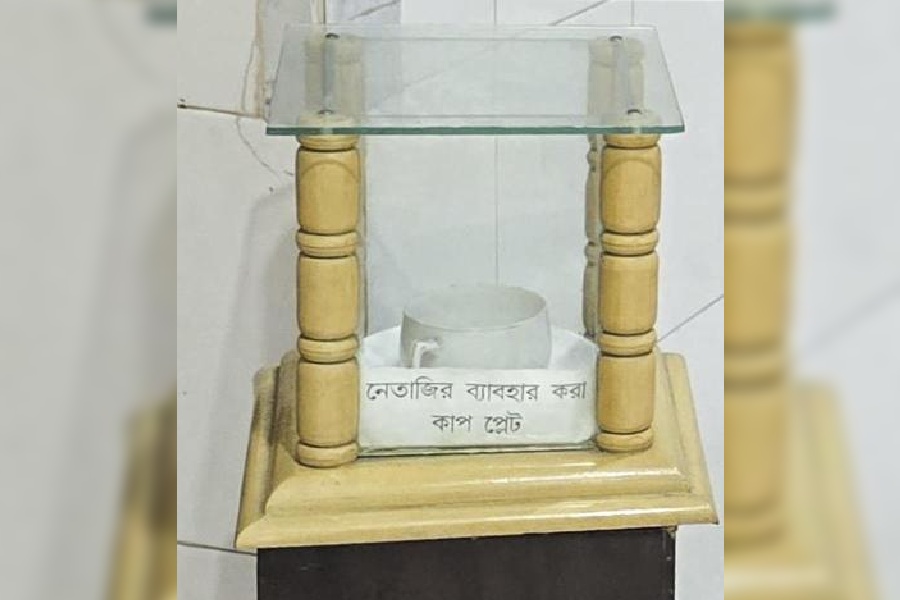Matter of shame
Sir — The demise of the 84-year-old Jesuit priest and tribal rights activist, Stan Swamy, who was suffering from multiple ailments and was on ventilator support in a hospital in Mumbai, is a matter of shame for the Indian State and its agencies which hounded him for months and had failed to provide the minimum human consideration owed to him as an ailing, elderly man (“In custody”, July 7). He was arrested in connection with the Elgaar Parishad violence and booked under the draconian Unlawful Activities (Prevention) Act that made bail difficult. Swamy suffered from Parkinson’s disease and was unable to even hold a glass in his hand. He had several other ailments and contracted Covid-19 while in custody.
It would need an impossible stretch of imagination to believe that Swamy, who had served the poor and the helpless for decades and had no record of any crime in his life, would work for the violent overthrow of the Indian State. It is incomprehensible how Swamy’s plea for bail, considering his ill-health, could be rejected so many times. His health deteriorated in jail and he simply did not get proper treatment there.
The death of Swamy is an institutional failure. His painful demise is a blot upon the nation and bears witness to the heartlessness of the administration.
N. Sadhasiva Reddy,
Bangalore
Sir — It was heartbreaking to read about the demise of Stan Swamy in prison owing to the lack of proper medical care. Swamy had tirelessly worked for the rights of tribal people before he was arrested on dubious charges under an anti-terror law. As an activist, he had questioned the non-implementation of the Fifth Schedule of the Constitution, which stipulated the setting up of a tribes advisory council made up solely of people from the adivasi community for their protection, well-being and development in the state.
Swamy, implicated in the Bhima-Koregaon violence, was the oldest person accused of terrorism in India. The National Investigation Agency had accused him of channelling funds to Maoist groups through the Persecuted Prisoners Solidarity Committee that was co-convened by him and Sudha Bharadwaj, who is also languishing in jail for similar charges. It is a matter of shame that Swamy, critically ill while imprisoned, was refused bail repeatedly.
In his last days in prison, Swamy had reportedly expressed that he did not wish to live for long if his situation were to remain unchanged. He had tested positive for Covid-19 in late May and finally passed away at a private hospital in Mumbai on July 5. His death is a testament to the determination of the Bharatiya Janata Party to wipe away all traces of dissent in New India.
Bhagwan Thadani,
Mumbai
Sir — It is clear that the NIA is struggling to find evidence against those charged under the UAPA in relation to the Bhima-Koregaon violence. Thus, there is no doubt that Stan Swamy would have eventually been acquitted by the courts. Unfortunately, he breathed his last in a Mumbai hospital away from his loved ones. His imprisonment had broken his body but not his soul. In a letter to a Jesuit colleague from Taloja Central Jail he wrote that even ‘a caged bird can still sing’.
The Indian government is sending a strong signal to the activists fighting for the rights of tribal people and other disenfranchised communities — if they continue to defy the government, they will meet a similar fate. As citizens of a democracy we must ask ourselves if we have now become a police State.
Anthony Henriques,
Mumbai
Sir — Although the United Nations body on human rights has expressed its shock and regret over the death the Stan Swamy, it is too little, too late. While the international body had repeatedly raised the question of the octogenarian’s arrest, it was unable to do anything. The UN must introspect on its failures.
Abir Ganguly,
Calcutta
Too harsh
Sir — The disqualification of the American sprinter, Sha’Carri Richardson, from the Olympics after she tested positive for cannabis has raised questions regarding the fairness of the decision. Marijuana is prohibited under the rules of the Olympics, but it is not a performance-enhancing drug. Richardson, who reportedly took the drug as a way of coping after the death of her mother, has since apologized. But many have argued that the policing of the usage of marijuana is firmly rooted in racism. It is perhaps time for the Olympic Committee to reconsider some of its archaic rules.
Konkona Chatterjee,
Calcutta

